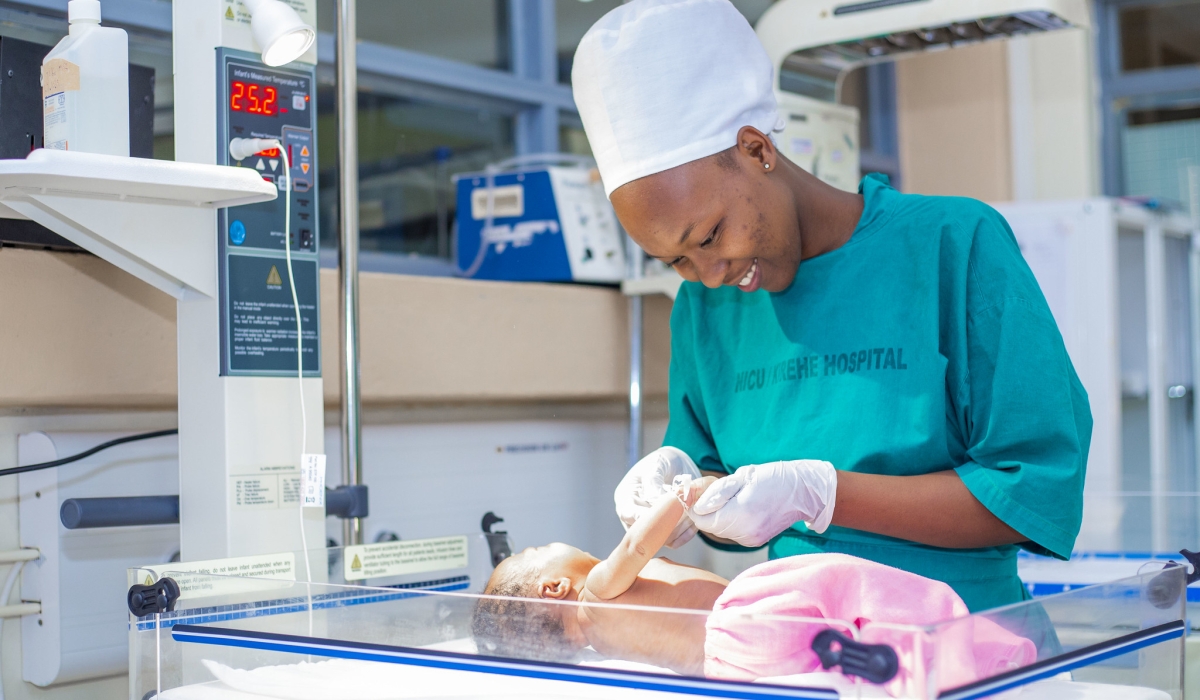Rwanda has deployed 226 newly graduated nurses from its first associate nursing program to health centers facing staff shortages, the Ministry of Health announced Monday.
Health Minister Dr. Sabin Nsanzimana shared the update during a session with the Parliamentary Committee on Governance and Gender Affairs on January 22. The associate nursing program was launched to boost the number of healthcare workers relative to the population.
The next group of nurses from the program is expected to graduate in 2026, according to Nsanzimana. Designed for students who pass their Senior 3 national exams, the program serves as a foundational pathway for careers in nursing, midwifery, medicine, and other health-related fields, while also allowing graduates to pursue university studies in these disciplines.
As of December 2023, Rwanda’s healthcare workforce included approximately 28,000 professionals: nearly 15,000 nurses, over 2,000 midwives, about 7,000 allied health professionals, and 700 specialist doctors. Despite these numbers, the ratio of healthcare workers to the population remains at 1:1,000, falling short of the World Health Organization’s (WHO) recommended minimum of 4:1,000.
Dr. Nsanzimana acknowledged the strain on the country’s healthcare system, citing long hours and an overwhelming workload for medical staff.
“Our healthcare workforce is sometimes overloaded, which can affect service quality. Some professionals work from 7 a.m. to 10 p.m.,” he said. “We are committed to increasing the number of nurses, but proper medical training requires time and preparation.”
The government has set a target under its “4×4 Reform” to meet the WHO benchmark of four healthcare workers per 1,000 people, aiming to become one of Africa’s top four countries in healthcare workforce availability.
To further address the shortage, Nsanzimana emphasized early professional development through the associate nursing program. This initiative provides mentorship, clinical exposure, and continuous professional development to enhance students’ readiness for the field.
Graduates of the program are equipped to work at all levels of Rwanda’s healthcare system, including hospitals, health centers, and health posts. Nsanzimana also encouraged the resumption of secondary school-level nursing programs nationwide to strengthen the pipeline of future healthcare professionals.
“The government remains committed to building a robust healthcare workforce to meet growing demand and ensure quality service delivery across the country,” he added.

